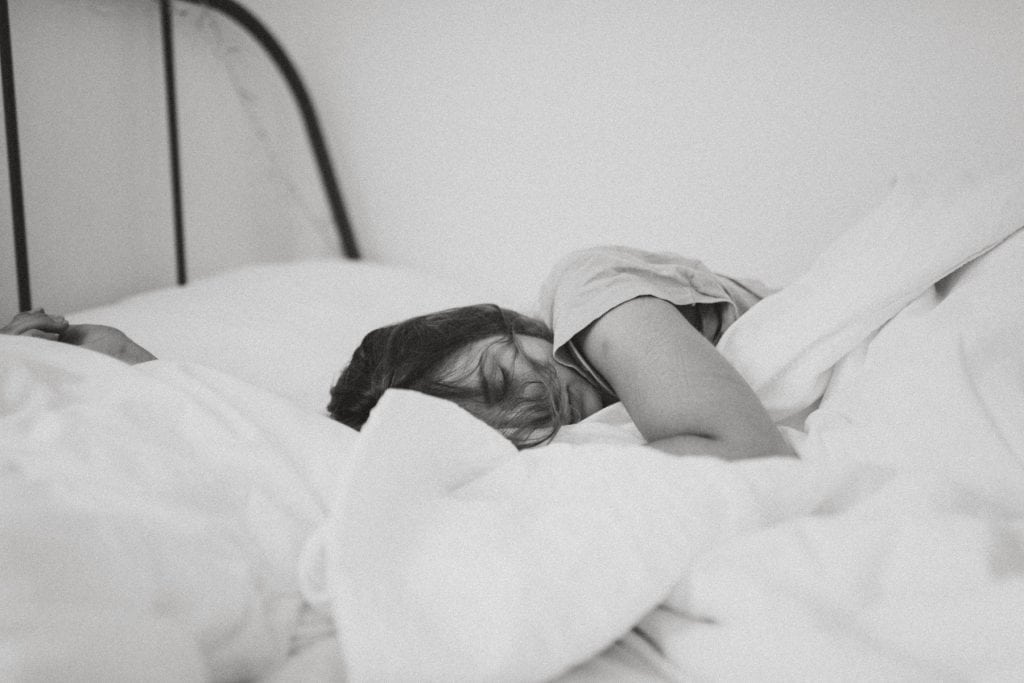Double Your Chance of a Good Night’s Sleep

Sleep and Rest
Sleep is the time of day when your body and brain rejuvenate. About 40% of people are sleep deprived with many only getting 5 hours of sleep per night. Lack of sleep can lead to weight gain, brain fog, increased risk for disease, can contribute to pre-diabetes (an insulin-resistant state), and premature aging processes. Improve your sleep with these 10 simple sleep hygiene tips.
10 Tips to Improve Your Sleep
- Exercise! This leads to better sleep. Even mild exercise helps.
- Stop caffeine consumption after mid-day. Caffeine can linger in your body for hours.
- Dim your lights. When the sun goes down, dim lights and avoid using electronics. The blue light disrupts your natural melatonin production. If you must use electronics, consider buying amber glasses that cut the blue light.
- Remove electrical items from the bedroom.
- Take a warm bath. Taking a bath within 2 hours of going to bed to increase your body’s temperature. Your body’s heat distribution is linked to sleep cycles. And sleeping in a cool room promotes better sleep.
- Stop drinking 3 hours before bed. Avoid being woken up with the need to go the restroom.
- Sleep in a dark room. Use an eye mask or black out curtains. The slightest hint of light can disrupt your body’s clock and pineal gland’s melatonin production.
- Use earplugs. If you are sensitive to noise, earplugs help.
- Use essential oils. To signal sleep, roman chamomile essential oil can help.
- Go to bed at the same time every night. This trains your body and signals your mind that it is time to rest.
Free Sleep Tracking Sheet
Fill in the “Contact us” email form and we will send you the FREE Sleep Tracking Sheet to Download and use. Measure your sleep patterns. Do any patterns emerge?
Top 5 Formulas Recommended to Promote A Good Night’s Sleep
If you still need to be more proactive with sleep, these formulas help with sleep. There are different levels of sleep help, some to relax to fall asleep, while other formulas are designed to help when you wake up in the middle of the night and need to get back to sleep.
- Insomnitol – a blend of botanicals, nutrients, and neurotransmitter precursors designed to support quality, restful sleep.
- Pharmagaba – a major inhibitory neurotransmitter in the central nervous system (CNS), GABA serves as a calming agent for the body, helping to combat stress and anxiety.
- Chamomile Tea – This tea is a relaxation aid.
- Ziziphus Sleep Formula – This herbal formula helps you fall asleep and stay asleep.
- Magnesium glycinate* or NeuroMag – Helps relax your body or Brain as you prepare for sleep.
- .
Refill sources for Supplements and Herbs
Therese Walsh-Van Keuren’s Wellness Store
Three Pots of Tea
The collective wisdom and perspective of three women who have been studying and practicing acupuncture and herbal medicine for over 20 years each. We have consumed countless pots of tea as we compared notes, case studies, and furthered our education in our commitment to grow as practitioners and help our patients reclaim their health and vitality.
Kathleen Port, L.Ac. West Los Angeles
Kia Sinay, L.Ac. Manhattan Beach
Therese Walsh-Van Keuren, PhD, L.Ac, Los Gatos
I find that using a Himalayan Salt Lamp as a night light really helps me sleep. Do you think this is all in my head or is there research to support this?
Hi Paul, From an opinion standpoint, I think that the Himalayan Salt lamps are researched regarding their ability to give off more negative (yin) ionic output into the atmosphere and this has an overall calming effect on human beings. For Example, This is the same phenomenon reported about going to the ocean and experiencing the calming effects of both the Negative (yin) ions and the rhythmic sound of the waves. I do feel the effects of the ocean most obviously. I have these same salt lamps in my office in an effort to create more a more healing atmosphere. Without plotting the data points, my feeling is to trust what your body tells you creating a healthy sleep environment. I am biased toward believing what my patients report to me. For my own sleep environment, I prefer complete darkness, and I am sensitive to light in my room, so I do not use this tool personally at night, but I do use it in my office environment.